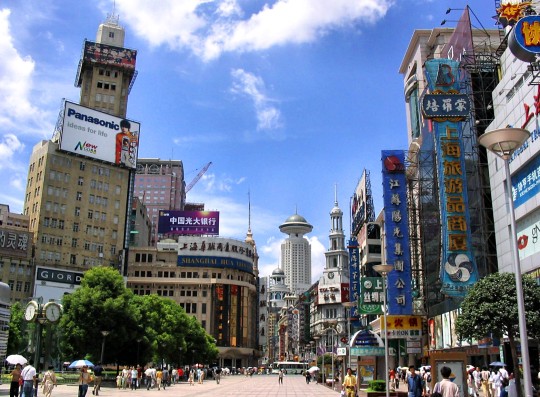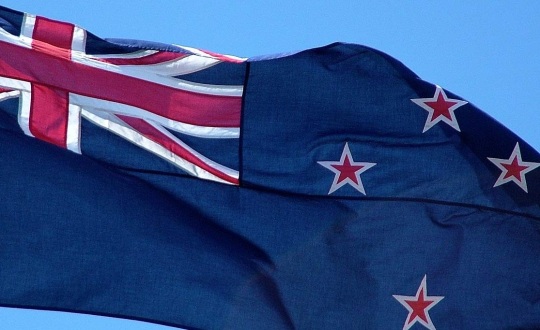Tagged: tariffs
New Zealand: The Sino-Kiwi friendship is definitely solidifying – but some analysts ask whether New Zealand is wise betting its economic future on China?
I read this opinion piece published last week at interest.co.nz by Bernard Hickey (Bernard Hickey sees NZ betting its economic future on China, a country with which we share little cultural DNA and don’t really understand) and thought it was a question worth consideration. Hickey first published this story in the Herald on Sunday. However this story is an extended version. Hickey writes:
“I’ve learnt over my 30 plus years of driving to be very careful about the blind spot behind my right shoulder because the mirrors I usually rely on don’t show me everything.
Nowadays it hurts the old bones in my creaky neck a little, but I always swivel and check before changing lanes.
A couple of weeks ago one of New Zealand’s most experienced and successful business leaders, Sir Henry van der Heyden, forgot to swivel and check New Zealand’s biggest blind spot before commenting.
His now famous comments about ‘never, ever’ trusting Chinese business people in China sparked quite a storm.
He quickly apologised and put the appropriate context around it about Fonterra’s misplaced trust in its joint venture partner Sanlu, but the intensity of the reaction threw a spotlight on a vulnerability in New Zealand’s current economic strategy.Just like the blind spot for a driver, we all know it’s there, but we hardly ever talk about it or address it directly. And just like the truck that seems to appear out of nowhere as we turn into the next lane, China is looming very quickly up behind our economy.
New Zealand is betting its economic future on a country we have very few durable cultural or political ties with.
We don’t know its history, we don’t understand its political system and we don’t really know how it ‘works’.
Very few New Zealanders speak China’s languages and we don’t have a single foreign correspondent reporting back to us what is happening inside the many corridors of power there.
This is a new thing and has happened much, much quicker than the previous shifts in our economic and strategic landscapes.
China’s share of our trade has more than doubled in the five years of the Free Trade Agreement to over 18% in the March quarter. It has jumped from our 3rd biggest partner to our biggest in less than half a decade.
The last major ‘lane change’ in New Zealand’s economy took 30 years through the 1970s, 80s and 90s. We switched from having Britain as our major trading partner to a Western-mix dominated by Australia and America.
We saw this change coming when Britain joined the EU and we moved into a lane with cars we could see coming and looked a lot like ours.
Australia and America shared New Zealand’s cultural DNA with all the institutions we understood such as democratically elected governments, independent judiciaries and free media. We spoke their language and shared their history – literally. We fought beside and died with the people of these countries in at least four wars over a century.
We ‘got’ them, and vice-versa.
Some would say not having shared history and culture shouldn’t stop a good old fashioned trade between a willing buyer and seller, but as we’re finding with China, the real opportunities involve much closer connections.
They require shared ownership and integrated supply chains that extend well beyond borders.
And that’s where things get tricky.
Shared institutions and culture are the things people fall back on when the going gets tough and things go wrong.
They help smooth troubled waters and resolve disputes without everything going pear-shaped.
Our unease about the lack of these supports explains why we were so sensitive and embarrassed by Sir Henry’s comments.
It’s why John Key was particularly sensitive this week when refusing to confirm in parliament whether he as GCSB Minister had ordered Chorus to block Huawei because of cyber security fears.
We know in our bones that our largest trading relationship is based on the whims of unknown and unaccountable leaders over whom we have little power to influence.
Getting that FTA was like winning the lottery and we could just as easily lose it.
This is quite different from our last big strategic switch. Remember, New Zealand has never fought a war against Australia, Britain or America. It has fought against China, albeit a limited one 60 years ago on the Korean Peninsular.
China’s leaders could change their minds on a whim.
We got a sneak preview of that when the whims of some Chinese customs officials held up our beef and lamb on Chinese ports for weeks.
We are also seeing it now in a tit-for-tat exchange of anti-dumping tariffs between China and Europe. The EU imposed tariffs on subsidised Chinese solar panel exports this week. Within days China reacted with tariffs on French wine exports.
Those watching closely are seeing a new leadership flexing China’s now much larger trade and strategic muscles in a variety of touch points with the West, including over disputed islands in the seas between China, Japan, the Philippines and Vietnam, disputed borders with India and in relations with Africa and the Middle East.
China is New Zealand’s economic blind spot.
We need to get bigger mirrors and be careful to look over our shoulders early and often.
It may mean we get cricked necks, but it might help us avoid that fast overtaking truck.

Nanjing Road, a major shopping street in Shanghai. Source: http://upload.wikimedia.org/wikipedia
What do we think?
Hickey has made some big calls here:
“New Zealand is betting its economic future on a country we have very few durable cultural or political ties with.” & “China is New Zealand’s economic blind spot.”
Is he correct? Is New Zealand putting all of its eggs in one basket, and doing so at their peril? Perhaps…
But my thoughts are more along the lines of Jake Wiltshire who commented:
“No point being paranoid about it, get on with it. Yes they do things different in China and they are less flexible with paperwork, [..] [This]does not mean that we should not do business with them. They do things differently and as long as we keep that in mind we can survive happily trading with China while it lasts. A better understanding on how things are done in China would help. But we should also remember that other than tax nothing lasts and/or increases forever. Let us make the most of the opportunities we get.”
Yes it is contrary to good business sense, to rely too heavily on one market, customer, client… A sound business strategy would involve be a combination of delivery and diversification… and New Zealand is doing this. New Zealand is negotiating FTAs with a number of States including India, Russia and also the TPP. At the same time New Zealand is integrating further into the Chinese market…
A very sound strategy in my opinion.
Anyway – everybody is investing in the Chinese market.
And even though Bernard Hickey points out that:
China’s share of our trade has more than doubled in the five years of the Free Trade Agreement to over 18% in the March quarter. It has jumped from our 3rd biggest partner to our biggest in less than half a decade.
Other commentators have pointed out that while New Zealand may have increased agricultural trade with China by 18% the rest of the world has seen a increase in agricultural trade with China by as much as 23%.
New Zealand and China may be chalk and cheese in terms of size, culture, history… but what matters is that we are integrating now. Our shared FTA ensures New Zealanders are visiting China, and Chinese visiting New Zealand. That has to be a good thing.
Related articles
- Bernard Hickey: Blind spot on our economic highway (nzherald.co.nz)
- NZ and China Customs strengthen relationship (national.org.nz)
- Strong demand from China for NZ logs (radionz.co.nz)
- Lets Talk “Zespri” Kiwis. (whenshaikhacooks.com)
- Sir Henry backtracks on China call (nzherald.co.nz)
- Infant formula exports booming (stuff.co.nz)
- Aussie, kiwi dollars knocked by weak China, solid US data (xe.com)
- Kiwi set to track up against aussie (stuff.co.nz)
- Aussie biggest NZ investor (nzherald.co.nz)
- Aussie, kiwi dollars hurt by soft China data (xe.com)

